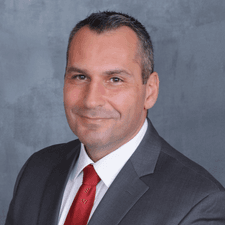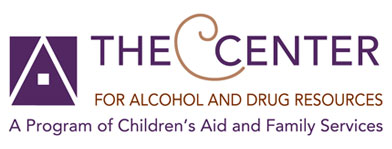The Power of Compassionate Communication: Recognizing the Family’s Role in Driving Change
When someone struggles with substance use, family members often serve as the silent scaffolding of support—yet their role remains critically underutilized. Join Dr. Carrie Wilkens for a transformative conversation on the vital, yet often overlooked, role of families in recovery. Drawing from decades of clinical experience and her Invitation to Change framework, Dr. Wilkens offers practical tools and fresh insights for professionals to better engage, support, and uplift families navigating substance use challenges.
Participants will be able to: (1) Understand family dynamics in recovery, (2) Explore impact of stigma and language, (3) Use Invitation to Change principles, (4) Equip families with supportive tools, and (5) Apply family-focused care in practice
Carrie Wilkens, PhD is a psychologist and expert in evidence-based treatment for substance use and trauma. She co-founded the Center for Motivation and Change (CMC) and leads both outpatient programs nationwide and the residential CMC:Berkshires. Through her work with the CMC Foundation for Change, she promotes the Invitation to Change approach—empowering families and professionals with science-backed strategies for behavior change. She is co-author of the acclaimed Beyond Addiction series and a recognized national voice in addiction treatment featured across major media platforms.
Workshops

Beyond Substance Use Disorder: Understanding Compulsivity Across the Behavioral Addiction Spectrum
Paul Lavella Jr. MA, LPC, LCADC, ICGC-II, CSAT, CCTP, ACS, CCS
Director, New Jersey Recovery and Wellness
Mental health and substance use disorders often carry hidden companions—compulsive behaviors that quietly erode progress and complicate care. This advanced-level workshop explores the evolving presentations of behavioral addictions, including gambling disorder, internet gaming disorder, compulsive sexual behavior, and binge eating disorder. Participants will examine how these co-occurring behaviors can significantly influence recovery and overall well-being. Whether you're seeking to sharpen your diagnostic lens or expand your treatment strategies, this session offers practical insights to help clinicians confidently navigate the nuances of these complex comorbidities.
Participants will gain critical tools to: (1) Identify the signs and symptoms of these underrecognized conditions, (2) Apply validated psychometric assessments, (3) Understand how co-occurring compulsive behaviors influence primary diagnoses—and how to tailor more effective, integrated treatment plans.

The New Jersey Drug Landscape and Emerging Threats
Captain Jason Piotrowski
New Jersey State Police
New Jersey’s substance use landscape is evolving fast—and so must our response. This workshop dives into the latest data and trends shaping the state’s drug landscape, from overdose rates and forensic drug findings to treatment admissions and shifting patterns of use.
We’ll explore opioid overdose trends, the rise in stimulant, benzodiazepine, and alcohol misuse, and the growing impact of THC on mental health. Through overdose mapping, forensic insights, and behavioral health data, participants will gain a clearer picture of how substance use is changing.
Participants will be able to: (1) Increase awareness of the current drug trends in the local area, (2) describe the health and behavioral risks associated with alcohol and drug use, including overdose risks, and (3) understand the link between drug abuse and other societal issues, such as crime and mental health disorders.

From Surviving to Thriving: Unlocking the Power of Recovery Capital
Cindymarie Dix, Director of Recovery Support
Prevention Links
Discover how Recovery Capital—encompassing personal strengths, social connections, community resources, and cultural supports—can transform recovery beyond traditional clinical treatment. This interactive workshop centers equity and inclusion by exploring systemic barriers, stigma, and cultural factors that impact Recovery Capital, especially for marginalized communities. Participants will learn to use practical assessment tools like the BARC-10 and engage in case-based learning focused on trauma-informed, peer-integrated, and culturally responsive strategies. Gain actionable approaches to empower individuals, families, and communities to build lasting, sustainable, and equitable recovery.
Participants will be able to: (1) Define Recovery Capital and its core domains—personal, social, community, and cultural—within an equity-focused, recovery-oriented framework. (2) Analyze systemic barriers, stigma, and cultural factors that impact Recovery Capital development, particularly for marginalized and underserved populations. (3) Apply Recovery Capital assessment tools such as the BARC-10 to identify strengths and gaps while considering cultural responsiveness and equity. (4) Engage in case-based learning to practice trauma-informed, peer-integrated, and culturally responsive strategies that build Recovery Capital. (5) Develop actionable approaches to empower individuals, families, and communities in building sustainable and equitable recovery supports.
Professional Development: This program will provide 6 professional development hours for teachers/school staff. Provider Registration Number 1409.
*New for 2025*CHES: CHES credits are sponsored by the Bergen County Department of Health Services. Credits will be awarded after participants provide their individual CHES numbers and complete the program evaluation.
Social Work: This course, The Power of Compassionate Communication: Recognizing the Family's Role in Driving Change, Approval #08262025-213, provided by The Center for Alcohol and Drug Resources, a Division of Children's Aid and Family Services is approved for continuing education by the New Jersey Social Work Continuing Education Approval Collaborative, which is administered by NASW-NJ. CE Approval Collaborative Approval Period: Tuesday, August 26, 2025 through August 31, 2026. New Jersey social workers will receive 1 Clinical CE credits for participating in this course.
This course, The New Jersey Drug Landscape and Emerging Threats, Approval #08272025-214, provided by The Center for Alcohol and Drug Resources, a Division of Children's Aid and Family Services is approved for continuing education by the New Jersey Social Work Continuing Education Approval Collaborative, which is administered by NASW-NJ. CE Approval Collaborative Approval Period: Wednesday, August 27, 2025 through August 31, 2026. New Jersey social workers will receive 1 Prescription Opioid CE credits for participating in this course
This course, Beyond Substance Use Disorder: Understanding Compulsivity Across the Behavioral Addiction Spectrum (Tree of Addiction), Approval #08272025-215, provided by The Center for Alcohol and Drug Resources- A Division of Children's Aid and Family Services is approved for continuing education by the New Jersey Social Work Continuing Education Approval Collaborative, which is administered by NASW-NJ. CE Approval Collaborative Approval Period: Wednesday, August 27, 2025 through August 31, 2026. New Jersey social workers will receive 1 Clinical CE credits for participating in this course.
This course, From Surviving to Thriving: Unlocking the Power of Recovery Capital, Approval #08272025-216, provided by The Center for Alcohol and Drug Resources, A Division of Children's Aid and Family Services is approved for continuing education by the New Jersey Social Work Continuing Education Approval Collaborative, which is administered by NASW-NJ. CE Approval Collaborative Approval Period: Wednesday, August 27, 2025 through August 31, 2026. New Jersey social workers will receive 1 non-clinical CE credits for participating in this course.
TCADR usually applies for continuing education from the Certification Board for Licensing and Certification Renewal LCADC, CADC, MFT, MFT- Permit, LPC, LAC LRC, and re-certification for all certifications issued by the Certification Board of New Jersey .

